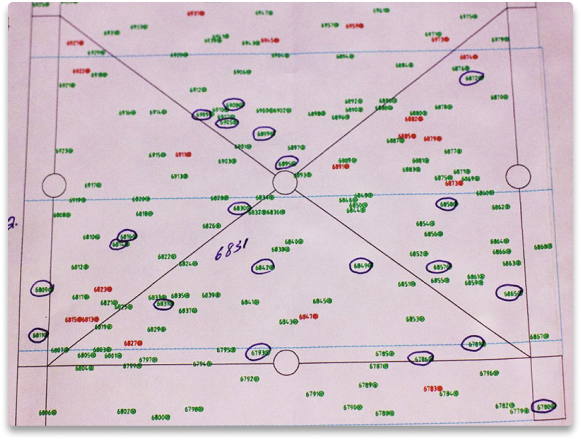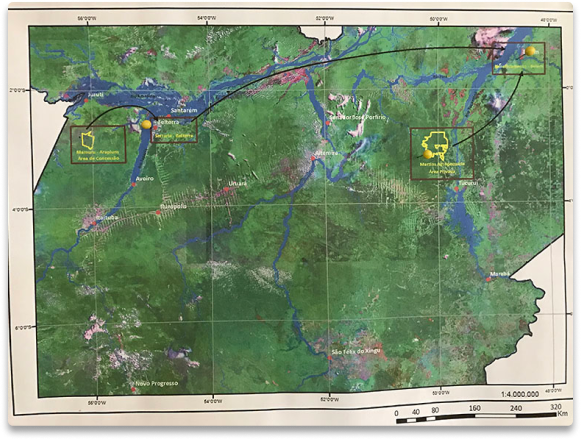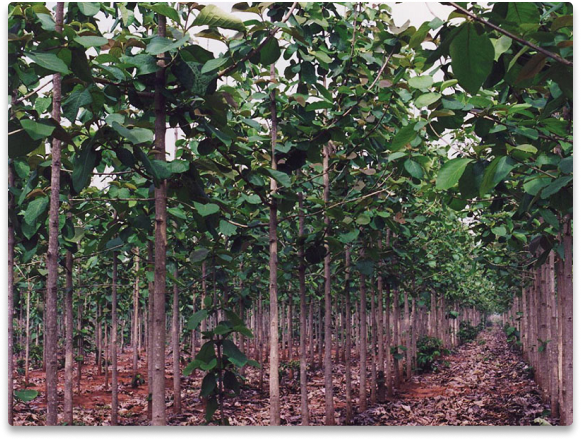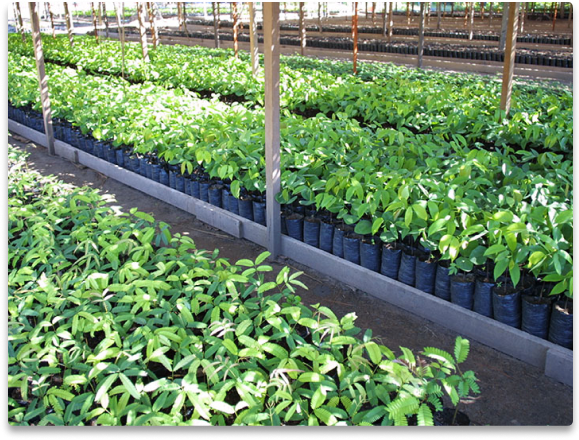RESPONSIBLE FOREST MANAGEMENT
SUSTAINABLE WOOD PRODUCTS
PROTECT TROPICAL RAINFORESTS
Our commitment to sustainability begins with our careful selection of wood suppliers who adhere to responsible forest management practices. All of our tropical hardwood products are sourced under the Lacey Act standards which require Nova to document the legal origin of the timber.
South America and Southeast Asia are home to the world’s most biodiverse forests, and many of our
products are sourced from Indonesia and Malaysia. In these areas, we exclusively work with suppliers
who have obtained the SVLK (Timber Legality Verification System) certification. The SVLK is an
independent certification system that verifies that the timber produced in Indonesia and Malaysia is
legally harvested and processed.

FOREST MANAGEMENT PLAN

MAP OF BRAZIL LOGGING
We support selective harvesting in these regions as well, which involves carefully mapping out and
dividing forest areas, and only harvesting between 20 and 200 trees within every 1000 acres of
forest. This approach helps to maintain the health and integrity of the forest ecosystem and allows
for natural regeneration to occur. We do not support clear-cutting in these regions, as it can have
devastating consequences for the environment and local communities. By working with responsible
suppliers and supporting sustainable logging practices, we aim to promote the preservation of the
world's forests for future generations.

BRAZILIAN TEAK PLANTATION

SAPLINGS IN A BRAZILIAN NURSERY
Wood products have a smaller carbon footprint than other common building materials such as cement,
plastic, or metal, which all require a large amount of fossil fuels to manufacture. Another key
benefit of wood products is their ability to store carbon for the lifetime of the product. This
means that by using long-lasting natural wood products, we can actually help to reduce the carbon
footprint.
In fact, the carbon storage capacity of wood products is so significant that it makes the
carbon footprint of wood products significantly smaller than that of composite or man-made building materials. By
choosing wood products, we are not only reducing our carbon footprint but also helping to combat
climate change.

1 ton of plastic = 5,442 kg of CO₂ emitted on average (depends on the type of plastic)
1 ton of steel = 1,677 kg of CO₂ emitted
1 ton of cement = 840 kg of CO₂ emitted
1 ton of red balau = 1,497 kg of CO₂ removed from the environment
Source: Leys, Andrea J. “How is Carbon Stored in Trees and Wood Products?” Forest
and Wood Products Australia, n.d.
Deforestation is a critical environmental issue, and some of the largest contributors to
deforestation include clear-cutting for agriculture, livestock, and housing. In contrast, selective
logging in tropical forests is the best way to add value to the standing forest resource, while also
providing value and jobs for people who live in the region. We support government agencies and
third-party certification organizations like the FSC® (Forest Stewardship Council®) in their efforts
to promote sustainable and responsible logging practices in tropical rainforests.
Our commitment to sustainability as a premium wood importer means that we prioritize responsible
forest management practices, promote the use of wood products as a sustainable building material,
and support efforts to protect tropical rainforests.
























